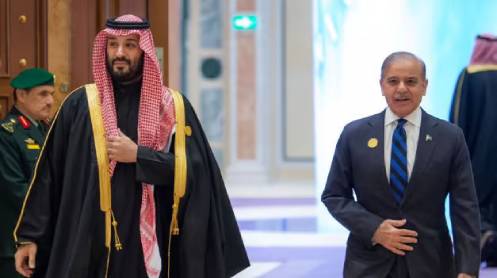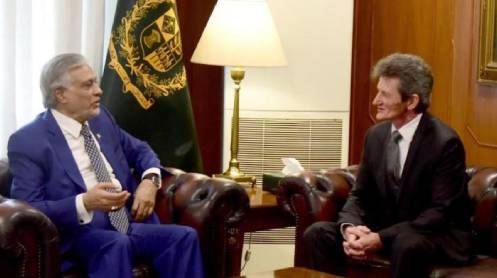ISLAMABAD: Saudi Arabia has rolled over a $3 billion deposit for Pakistan, extending its maturity by another year. This marks the third consecutive extension since the deposit was initially placed in 2021. The Saudi Fund for Development (SFD) announced the extension on Thursday, the deadline for repayment, underscoring the strong bilateral ties between the two nations.
The rollover comes as Pakistan grapples with a precarious economic situation, compounded by insufficient non-debt inflows and mounting external obligations. The Finance Ministry has indicated that an additional $2 billion Saudi deposit maturing in mid-2025 is also expected to be rolled over.
According to the State Bank of Pakistan (SBP), the Saudi extension will bolster foreign exchange reserves and support economic stability. However, the country faces immediate challenges, with at least $13 billion in repayments due to Saudi Arabia, China, and the UAE by mid-2025.
Debt Challenges Ahead
UAE: Pakistan owes $3 billion, with $2 billion maturing soon.
China: $8 billion repayments are due in six months, including $2 billion in March and $2.4 billion in June.
Saudi Arabia: An additional $2 billion debt will mature after June 2025.
China remains Pakistan’s largest bilateral creditor, with $29 billion in loans, followed by Saudi Arabia at $9.2 billion. These obligations contribute to Pakistan’s $131 billion external debt as of 2023, representing 352% of exports, according to the International Debt Report 2024.
Debt Servicing and Policy Implications
Efforts to avoid default have led to increased reliance on rollovers and debt stock expansion, further compounding repayment pressures. Pakistan’s strategy of securing extensions from bilateral creditors contrasts with its timely payments to multilateral institutions like the IMF, World Bank, and ADB.
The SBP recently reported an increase in foreign reserves to $12.1 billion, partly due to a $500 million inflow from the ADB. However, reserves remain insufficient to cover six months of bilateral repayments.
Deputy Prime Minister Ishaq Dar has projected a fair dollar value of Rs235-240, while experts argue that the exchange rate could stabilize at Rs212 based on historical trends.
Path Forward
Pakistan has requested China to reschedule $3.4 billion in project-related debt for two years to bridge its $5 billion financing gap identified by the IMF. Meanwhile, exports and remittances have shown gradual improvement, offering some hope for economic recovery.
The continued support from Saudi Arabia highlights the critical role of international partnerships in stabilizing Pakistan’s fragile economy, but long-term solutions remain imperative to address structural inefficiencies and mounting debt obligations.
Story by Shahbaz Rana





